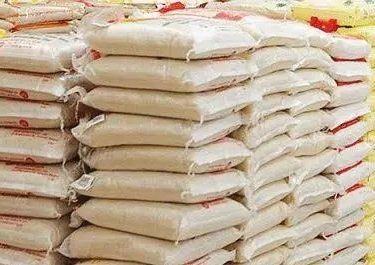The Chartered Institute of Bankers of Nigeria (CIBN), along with economists and financial experts, has projected a cautiously optimistic outlook for Nigeria’s economy in the year’s second half.
This view was shared at the fifth Mid-Year Review of the 2025 Economic Outlook, held in Lagos by CIBN Centre for Financial Studies and B. Adedipe Associates Ltd.
During the roundtable, CIBN President and Council Chairman, Prof. Pius Olanrewaju, said Nigeria’s economic fundamentals showed resilience despite ongoing macroeconomic challenges.
He said this resilience justified optimism for improved economic performance in the months ahead.
Citing National Bureau of Statistics data, he said Nigeria’s GDP grew by 3.13 per cent year-on-year in the first quarter of 2025.
He noted this as an improvement on the 2.27 per cent recorded in the last quarter of 2024.
This growth, he explained, was driven by strong activity in the financial services, agriculture, and ICT sectors.
However, he acknowledged inflation remains a major concern, with June’s rate at 22.22 per cent, driven by high food prices, energy costs, and forex pressures.
He said: “The sectoral performance in H1 2025 showed mixed results, shaped largely by evolving market dynamics and macroeconomic factors.
“Still, the Central Bank of Nigeria’s recapitalisation drive has improved investor confidence, causing a 6.96 per cent rise in banking stocks in Q1.”
He added that CBN Governor, Mr Olayemi Cardoso, recently noted that while some banks had met recapitalisation targets, others remain on track for the March 2026 deadline.
“Nigeria’s H2 2025 economic outlook suggests moderate growth but ongoing structural and fiscal challenges remain,” he stated.
Olanrewaju said in spite of these hurdles, recent CBN reforms and tighter monetary policy had introduced signs of macroeconomic stability.
He noted that the apex bank’s efforts, including a $197.71 million forex market injection in April and reserves rising to $40.11 billion by mid-July.
“The CBN retained the Monetary Policy Rate at 27.75 per cent to help stabilise the naira and check inflationary trends,” he added.
He said these policies and ongoing structural reforms were expected to deliver tangible results in the year’s second half.
He again highlighted renewed momentum in the banking sector, where recapitalisation efforts had boosted investor confidence and stock growth.
“As a nation, we must still address inflation, largely caused by volatile exchange rates and rising energy costs.
“Nigeria’s reliance on oil revenues leaves the economy vulnerable. Government diversification efforts are essential for long-term resilience,” he added.
Also speaking, Dr Biodun Adedipe, Founder and Chief Consultant at B. Adedipe Associates Ltd., said H1 2025 recorded notable economic improvements.
He said this progress helped stabilise policies and laid a firmer foundation for economic growth in the coming months.
Looking ahead, he said signs indicate the economy may perform better in H2 2025.
He urged businesses to pursue strategic partnerships, adopt digital transformation, and integrate climate risk and agentic artificial intelligence solutions.
Managing Director at JP Morgan, Mr Dapo Olagunju, advised entrepreneurs to adopt a global mindset and seize growing international opportunities.
“Entrepreneurs should rely on data and follow where the data leads. This is the ideal time to invest,” he said.
Senior Vice President at Flutterwave, Mrs Olufunmilayo Olaniyi, encouraged startups to adopt blockchain technology for accelerated growth.
“Blockchain streamlines data, protects it, aids analysis, reduces fraud risk, and secures financial operations.
“Entrepreneurs must also prioritise financial visibility,” she said. (NAN)





